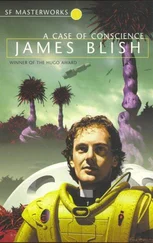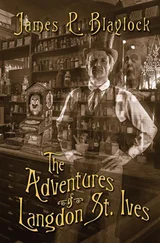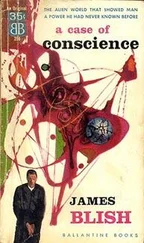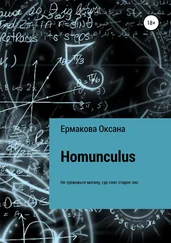James Blaylock - Homunculus
Здесь есть возможность читать онлайн «James Blaylock - Homunculus» весь текст электронной книги совершенно бесплатно (целиком полную версию без сокращений). В некоторых случаях можно слушать аудио, скачать через торрент в формате fb2 и присутствует краткое содержание. Жанр: sf_stimpank, на английском языке. Описание произведения, (предисловие) а так же отзывы посетителей доступны на портале библиотеки ЛибКат.
- Название:Homunculus
- Автор:
- Жанр:
- Год:неизвестен
- ISBN:нет данных
- Рейтинг книги:5 / 5. Голосов: 1
-
Избранное:Добавить в избранное
- Отзывы:
-
Ваша оценка:
- 100
- 1
- 2
- 3
- 4
- 5
Homunculus: краткое содержание, описание и аннотация
Предлагаем к чтению аннотацию, описание, краткое содержание или предисловие (зависит от того, что написал сам автор книги «Homunculus»). Если вы не нашли необходимую информацию о книге — напишите в комментариях, мы постараемся отыскать её.
Homunculus — читать онлайн бесплатно полную книгу (весь текст) целиком
Ниже представлен текст книги, разбитый по страницам. Система сохранения места последней прочитанной страницы, позволяет с удобством читать онлайн бесплатно книгу «Homunculus», без необходимости каждый раз заново искать на чём Вы остановились. Поставьте закладку, и сможете в любой момент перейти на страницу, на которой закончили чтение.
Интервал:
Закладка:
St. Ives stared at the machine for a long minute, peering at the little crenelations along its fins, its emerald-tinted ports, the silver sheen of its globular bulk. All in all it wasn’t vastly different in character from his own ship — they weren’t brothers, to be sure, but they bore each other an unmistakable family resemblance. Curious, thought St. Ives, how two vehicles that hailed from galaxies so immensely distant from each other should have such an obvious affinity. There was a metaphysic there that bore contemplation, but it seemed a good idea to wait until later to contemplate it. He turned and made off down the stairs, pushing through two doors and under a tremendous arch into the hall.
He grasped the rope that hung behind the drawn curtains and gave it a yank, the curtains swinging back and the room flooding with midafternoon sunlight. The vast, unshuttered window looked out onto Wardour Street, obscured partly from view by a scattering of junipers and boxwoods that grew up close along the walls of the house, entangled in the creeping tendrils of climbing fig. It might easily have been years since the foliage had been trimmed, and easily as long since the drape had been drawn to illuminate the dim and unwholesome room with sunlight.
At the sound of a crashing upstairs and what sounded like the whispering of furtive voices, St. Ives hastily manipulated what seemed to him to be the hatch — a circular panel that popped open like the stone door of Aladdin’s cave, emitting a little airy chirp as if startled, perhaps, by the touch of the scientist’s hand.
At the sudden sight of the interior of the ship, St. Ives found himself trembling so that he could hardly command his hands and feet. He attempted to scale the side, but his foot slid from a protruding bit of polished metal and his hands could find no purchase on the slippery arched edge of the open hatch. His breath whooshed out by the lungful. He felt suddenly giddy and faint, faced, as he was, by the object of a long and sometimes desperate search and fired by the fear that at any moment he’d hear the click of a pistol hammer drawn back or the rough shout of one of Drake’s men. He hauled on the arm of a nearby upholstered chair, drawing it up next to the spacecraft, climbing up onto the seat and nearly sinking at once to the level of the floor in the soft, lack-springed cushion. He stepped up onto an arm, teetered back and forth, and slid head first in at the hatch. After yanking the hatch shut, he settled into a cushioned seat and surveyed the interior of the ship.
Before him were a plethora of dials and gauges. He’d wage a sum on his being able to guess out the nature of half a dozen of them, but others were a mystery. The dials were mounted under clock crystals, filled, it seemed, with violet liquid. Scattered in between and roundabout were buttons that one might push, fabricated of what appeared to be ivory and ebony. St. Ives had the sudden urge to jab away at them, like a man with no musical training might poke at the keys of a piano. But the discordant result might easily mean his doom — probably would mean his doom. He calculated, trusting to his earlier conclusions about the peculiar but telling affinity of related objects in the universe. His fingers wandered from one switch to the next. Nothing ventured… he told himself, stopping before an ivory button beside which was a sort of hieroglyphic depiction of a sun. He stabbed at it. The dials glowed suddenly through the violet liquid. Emboldened, he pushed another, this one next to a little picture of an aeolus-faced puff of wind. A humming ensued. St. Ives braced himself, then felt, against the back of his neck, a little rush of air. An oxygenator, he thought, smiling at his pair of successes. He jabbed another button and the hatch opened.
“Damn,” he said, half aloud. He stooped up through the hiatus, grasped the hatch in order to haul it back down, and looked straight into the ruined face of a ghoul, who stood precariously on the upholstered chair. St. Ives shrieked at it, dropping into the craft, bounding up again to clutch at the hatch, the ghoul meanwhile endeavoring to hoist itself in. Its gaping face, hair tumbling over its forehead, loomed in above St. Ives, who pressed his right hand against the thing’s nose and forehead, shoving with all his strength, his feet braced against the deck of the craft. The ghoul stared out stupidly from beneath St. Ives’ fingers, its own hands stubbornly clutching the edges of the circular hatch opening. St. Ives banged at the fingers with the fist of his free hand, then reached past, grasped the hatch, and slammed it down on the back of the thing’s head.
It lurched forward, eyes widening, then jerked its head out, throwing the hatch open with it. A third hand joined the pair still clutching the ship — another ghoul endeavoring to clamber in. St. Ives banged the hatch down onto the fingers, mashing at them once, then twice, then a third time, grimacing at each blow, expecting a rain of severed fingers. He shut his eyes and slammed the hatch again. It settled into place. Outside were the two ghouls, examining their hands with looks of wonder on their faces, as if having already forgotten how they’d come to be in such a state. Beyond them was another ghoul. Two more slumped in through the door.
St. Ives gritted his teeth and poked an ebony button. The ship lurched and lay still. He poked another. Nothing at all happened. Two ghouls pushed a sofa toward the craft. Another hauled at an oak secretary. Three more wandered into the room and tugged at a piano, inching it forward, intent upon… what? Scuttling St. Ives’ ship by burying it in furniture? The scientist settled to his work. A heavy rope end flicked past the window. They were tying the craft to the leg of the upholstered chair, then winding it around the leg of the piano. He’d been wrong about the cleaning woman again. Apparently it was common knowledge, even among ghouls, that the craft was a ship of some sort — not at all a bad thing, thought St. Ives. It argued that the craft worked, that Drake had given orders to prevent its being hijacked.
At the pressing of a button next to the drawing of a spiralling arrow, the ship spun suddenly on its axis, dragging with it the stuffed chair and tearing the rope from the hands of a bent and ragged zombie that crept about under the piano. St. Ives pressed the same button and the movement stopped. He pressed again and the craft resumed its revolution. When he faced the window straight on, he pushed it once again. Then, throwing caution onto the dust heap, he stabbed away at a succession of buttons.
The ship shuddered, lurched, slid forward a foot. The chair in which he sat tilted back, nearly dumping him onto the floor. A wild hum erupted as the craft lurched again, skittered across the floor, and, in an avalanche of cascading glass and tearing vines, rose in a sudden escalating rush, hauling with it the stuffed chair and a single dangling ghoul whose face, smitten with wonder and confusion, pressed against one of the starboard ports for a quick second or so before sliding away and disappearing.
St. Ives, hands flying over the controls in a wild effort to steady the craft, had no time to be concerned with attached zombies. The ship cartwheeled. St. Ives watched in a whirling rush the topsy turvy dome of St. Paul’s spin past, followed by a brief glimpse of the spiraling armchair, lost almost immediately to sight and giving way to what was almost certainly a split-second view of the Kennington Oval. The ship shot away to the south and west, bound, it seemed, for the Channel.
He was moving prodigiously fast in an utterly uncontrolled flight, pinned to his seat by the laws of physics on a voyage that, he was suddenly certain, was making him sick at his stomach. It would end in disaster. He knew it. He could picture himself catapulting out of hand into the sea. He couldn’t, in fact, picture anything else. It was evident that the slightest manipulation of a pair of curved levers at dead center in front of him would cause the ship to tumble or swerve or skip or in some way run mad. Hesitantly, he prodded one. But he succeeded only in once again cavorting along end over end. There was the sea, the lying chair, what appeared briefly to be a pantleg with a shoeless foot dangling from it, this last entangled in the swinging rope. A prod at the other lever sent him plummeting breathlessly toward the sea, his stomach at once in his throat, the chair rising weirdly past the ports followed by the staring face of the zombie, whose ankle was fouled in the line. The gray swell of the Channel hurtled toward him as he edged the lever back, ever so slowly. The craft swung round in a slow arc, leveling off, then rising once again. It was slow deliberation that was called for — the mere consideration of pressure on a lever was nearly sufficient for a change of course.
Читать дальшеИнтервал:
Закладка:
Похожие книги на «Homunculus»
Представляем Вашему вниманию похожие книги на «Homunculus» списком для выбора. Мы отобрали схожую по названию и смыслу литературу в надежде предоставить читателям больше вариантов отыскать новые, интересные, ещё непрочитанные произведения.
Обсуждение, отзывы о книге «Homunculus» и просто собственные мнения читателей. Оставьте ваши комментарии, напишите, что Вы думаете о произведении, его смысле или главных героях. Укажите что конкретно понравилось, а что нет, и почему Вы так считаете.












